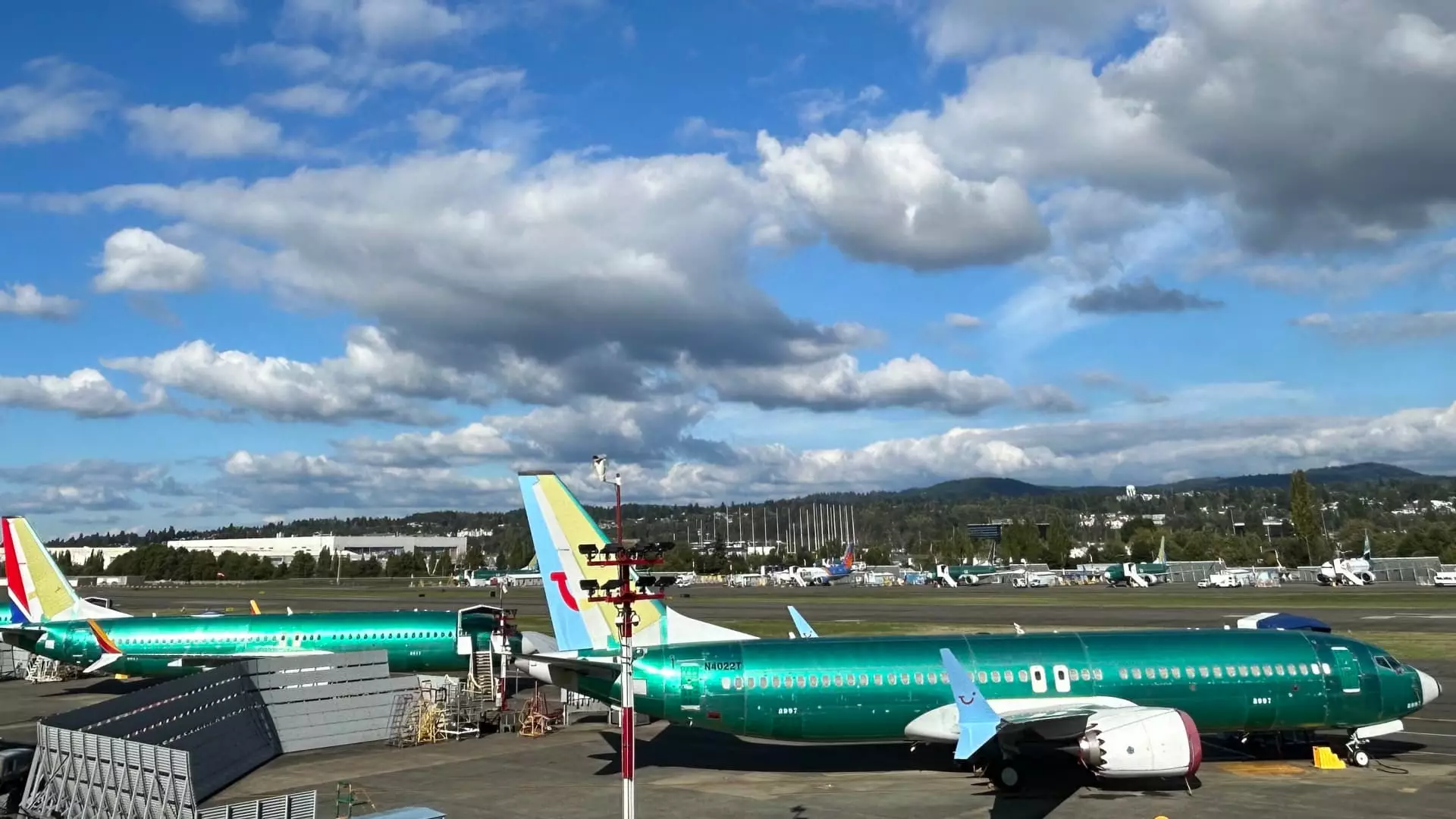The iconic status of Air Force One, the aircraft designated for the President of the United States, carries with it a sense of urgency and high expectations. The ongoing saga concerning the new Boeing 747s intended for this vital role has become a point of frustration not just for President Donald Trump, but also for Boeing executives and the American public. With substantial delays and staggering cost overruns, this situation raises concerns regarding the efficiency of aviation contracts and project management in the defense sector.
Originally negotiated by President Trump during his initial term, the contract valued at approximately $4 billion to produce new Air Force One planes has quickly turned into a logistical nightmare. Reports indicate that the program is lagging significantly behind schedule, a scenario that is all too familiar for Boeing’s defense and space units. Cost overruns have already exceeded $2 billion, painting a troubling picture of financial mismanagement or unexpected complexities within project deliverables.
As the original builder of the Air Force One aircraft, Boeing’s failure to meet deadlines not only impacts presidential travel plans but also tarnishes the company’s reputation. The expectation is that the newly designed planes would uphold the unparalleled standards associated with this esteemed designation. Consequently, the failure to deliver on time could strip away that trust, raising questions on accountability.
In response to these setbacks, President Trump has candidly expressed his dissatisfaction regarding the delayed delivery timeline. During a recent trip aboard one of the current Air Force One aircraft, he mentioned the possibility of seeking alternative solutions to secure a new plane. This revelation indicates not only his growing impatience but also hints at discussions regarding the potential purchase of a different aircraft.
In an attempt to expedite the process, Trump has enlisted the help of Elon Musk, the CEO of SpaceX and a familiar name in innovation and technology. Musk’s involvement is noteworthy given SpaceX’s direct competition with Boeing in certain realms of aerospace engineering. The collaboration underscores a pressing need for fresh perspectives and innovative strategies to resolve existing challenges.
Boeing’s CEO, Kelly Ortberg, acknowledged Musk’s role in attempting to troubleshoot the constraints plaguing the project. Ortberg describes Musk as a “brilliant guy” capable of distinguishing between technical necessities and superfluous obstacles. This collaboration symbolizes a willingness to embrace outside expertise in a bid to recover lost time and resources, showcasing the intersection of different philosophies within the aerospace industry.
The partnership also brings to light the inherent tensions within the aviation sector as companies strive to meet the complex demands of governmental contracts. Time and again, we see that ambitious projects like these are susceptible to convoluted bureaucracies that can halt progress, draining finances while discouraging innovation.
For Boeing’s wider clientele, frustrations are equally palpable. Airlines globally have faced considerable delays primarily attributable to Boeing’s production hurdles as the post-pandemic travel boom surged. However, there are indications that perceptions are beginning to shift. A recent Barclays conference highlighted a renewed optimism among executives, who noted signs of improvement in Boeing’s reliability and performance since Ortberg took over.
Voices from industry leaders like United Airlines and Southwest Airlines convey cautious optimism, signaling that while the challenges are substantial, Boeing appears to be on a path toward recovery and increased productivity. Ortberg’s assertions regarding the absence of supply chain issues could hint at a recovery that not only benefits commercial airlines but also critically impacts the timely delivery of Air Force One.
As the drama surrounding Air Force One unfolds, the stakes remain high, not only for President Trump but for Boeing as a company and the broader aerospace industry. The combination of political pressure, public scrutiny, and financial implications drives home the urgency of this situation. Success in delivering an iconic and historically significant aircraft on time could help restore faith in Boeing’s capabilities, but failure could compound existing issues.
The story of Air Force One and its troubled journey with Boeing encapsulates challenges that lie at the intersection of politics, corporate accountability, and international prestige. The world will be watching closely as developments unfold, shaping not only the legacy of Trump’s presidency but possibly the future direction of the aerospace industry as a whole.

